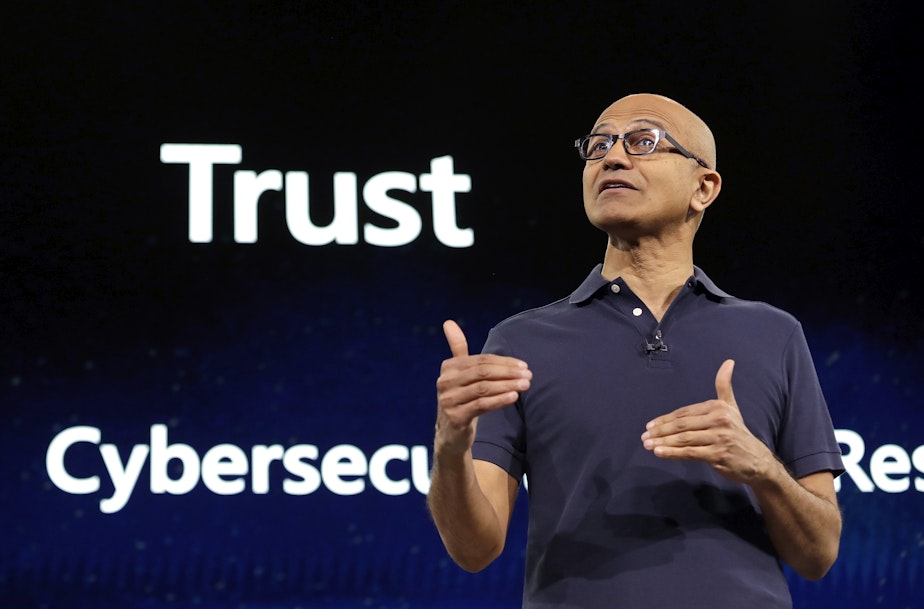Microsoft has learned to play ball with unions. Could it rub off on other tech companies?

It looks like the icy relationship between Starbucks, and the union that represents some store employees may be starting to thaw.
Starbucks Workers United and Starbucks announced that the two parties are beginning discussions on a “foundational framework.”
"The company says that it wants to reach collective bargaining agreements with all of its unionized stores by the end of 2024," said Noam Scheiber, a reporter focusing on labor and the workplace for The New York Times. "That's a pretty rapid timetable. And it really does feel like a big strategic shift."
Only time will tell how these discussions percolate. If the union and Starbucks strike an agreement, it would be a major move in corporate America, where companies like Apple and Amazon continue to fight unionization efforts.
Meanwhile, another company with Pacific Northwest roots, Microsoft, has found its own way to work with unions in recent years.
One way, as Scheiber reports, is by remaining neutral if certain employees seek to unionize.
But the tech giant wasn't always an outlier.
"Microsoft, was famous — many would say infamous — in the 1990s for being just a very hard-nosed, aggressive company," Scheiber said.
But following a settlement with the Department of Justice and several states that sued on antitrust grounds in the early 2000s, Microsoft was forced to take a step back and reflect.
"[Microsoft] decided, 'We really can't keep going about things this way — being really aggressive and really ruthless and squeezing all our competitors," Scheiber said.
Ultimately, it served the company more to build better relationships with regulators, the federal government, and even employees.
With a history of federal scrutiny, it may be in Microsoft's favor to engage with organized labor more positively, given the Biden administration's track record with labor unions, Scheiber said.
"You have Lena Kahn at the [Federal Trace Commission], you have the antitrust division of the Justice Department — both of whom had been very, very skeptical of consolidation, of mergers, and acquisitions," he said. "And they've actually brought a large number of lawsuits to block some very high-profile mergers."
A neutrality deal with a union is a good way to keep Microsoft's acquisition of other businesses, like video game publisher Activision Blizzard, from getting blocked.
"It doesn't take a rocket scientist to figure out that maybe having a good relationship with the union could help nudge this deal along," Scheiber said.


